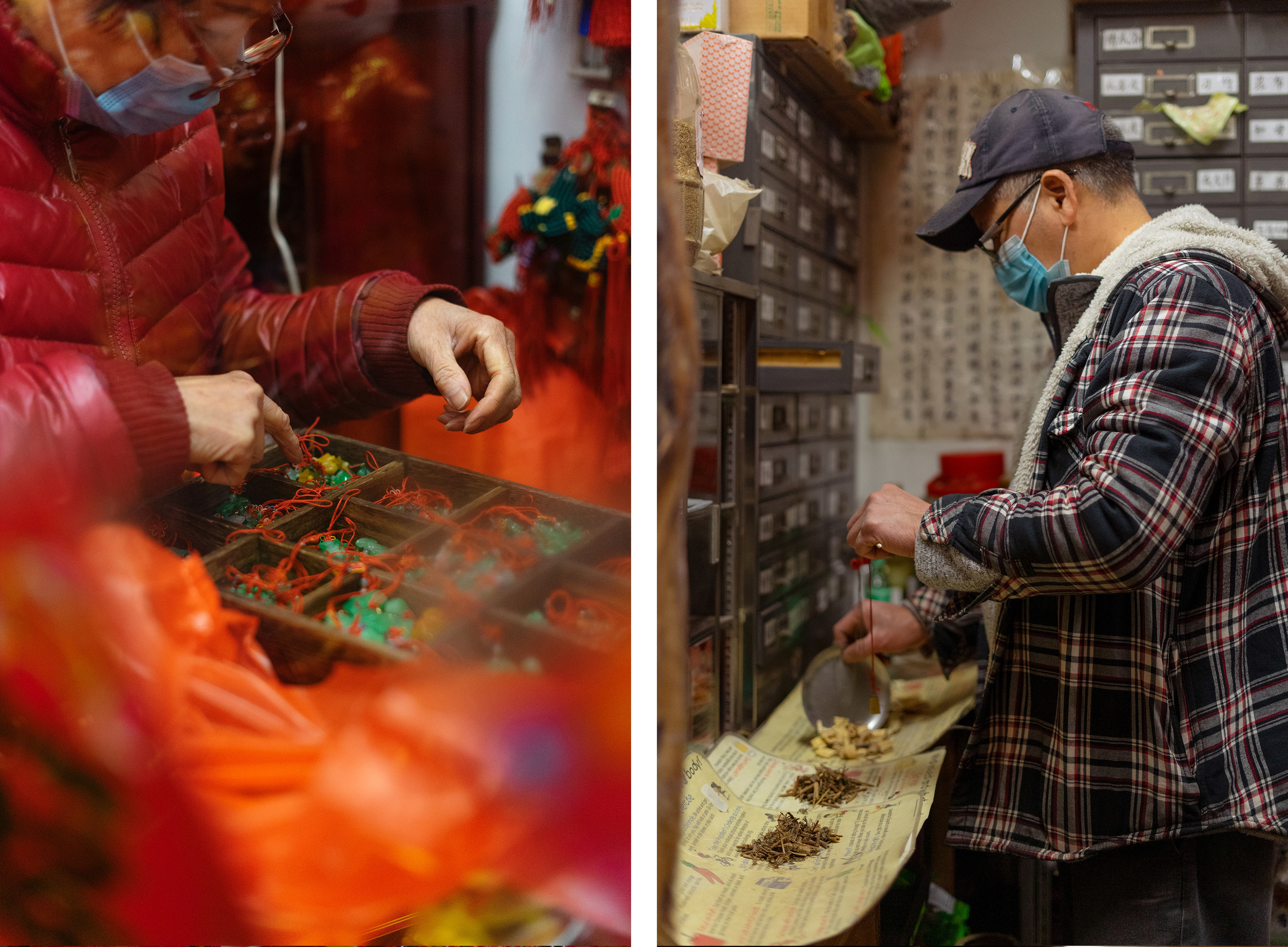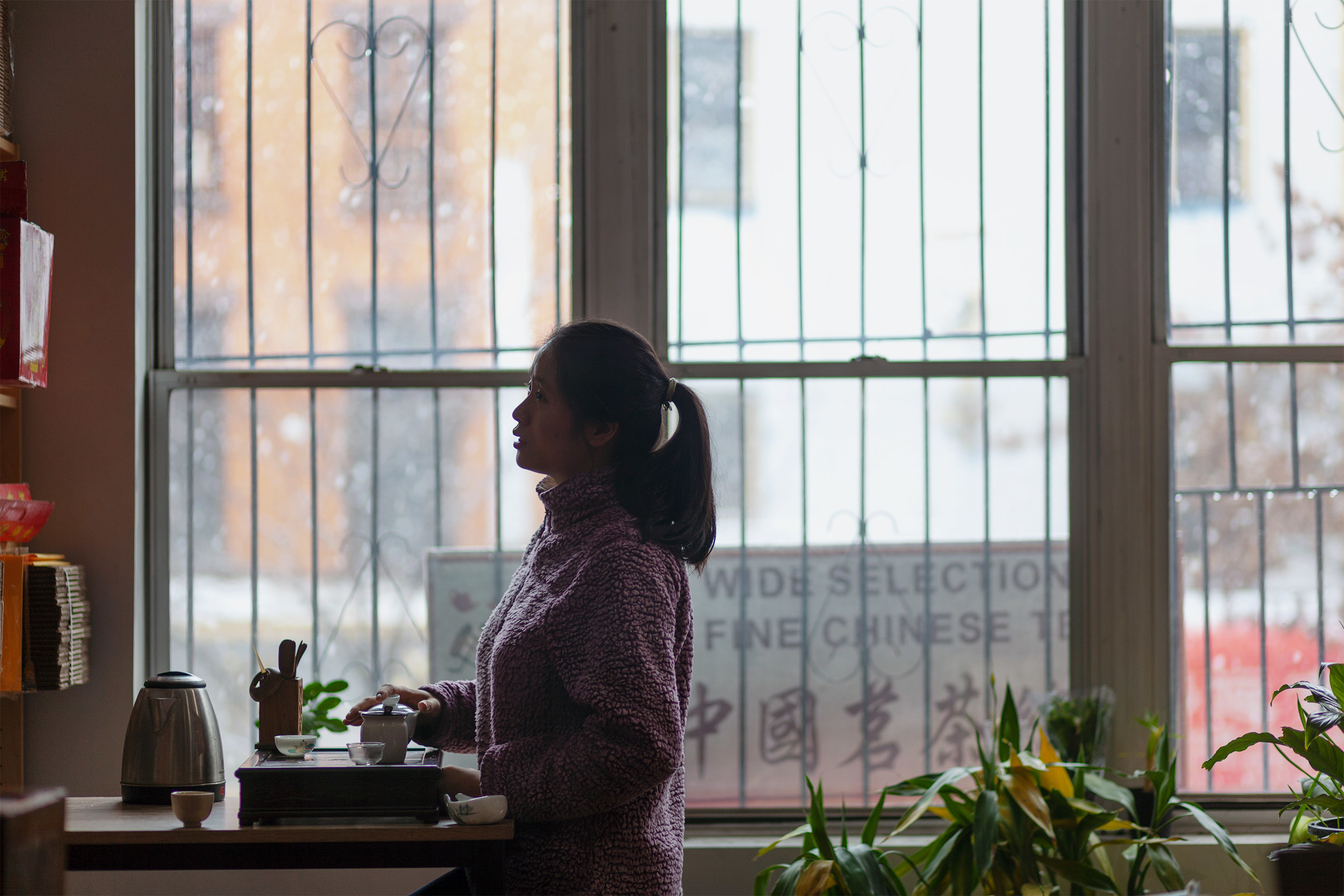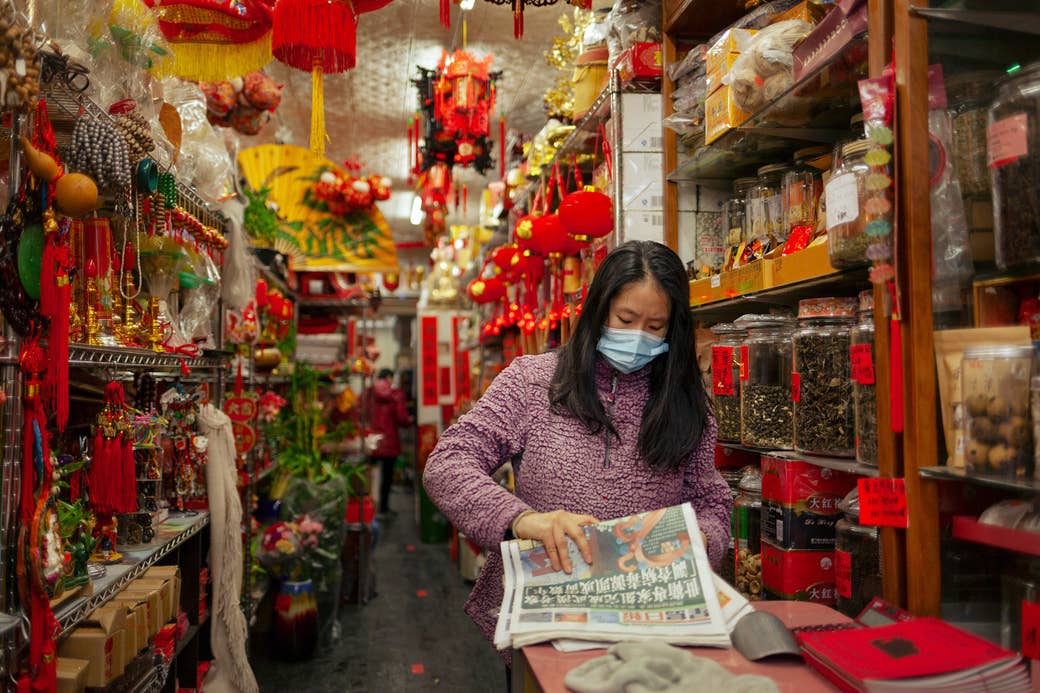
Manhattan’s Chinatown is one of the jewels of New York City, and it usually shines brightest on Lunar New Year. The holiday has been a time to get together with family and friends, eat and share wealth, or maybe watch the lion dance in a parade.
Now, after a disastrous year that has seen landmarks close, xenophobia in the streets, and a virus that has devastated its older community, struggling businesses are mustering optimism to wash away the old year.
Grace Young, a cookbook author and advocate for Chinatown businesses, visited the neighborhood with photographer Julia Wang as street fruit vendors and brick-and-mortar businesses alike prepared for Lunar New Year, which begins Feb. 12.
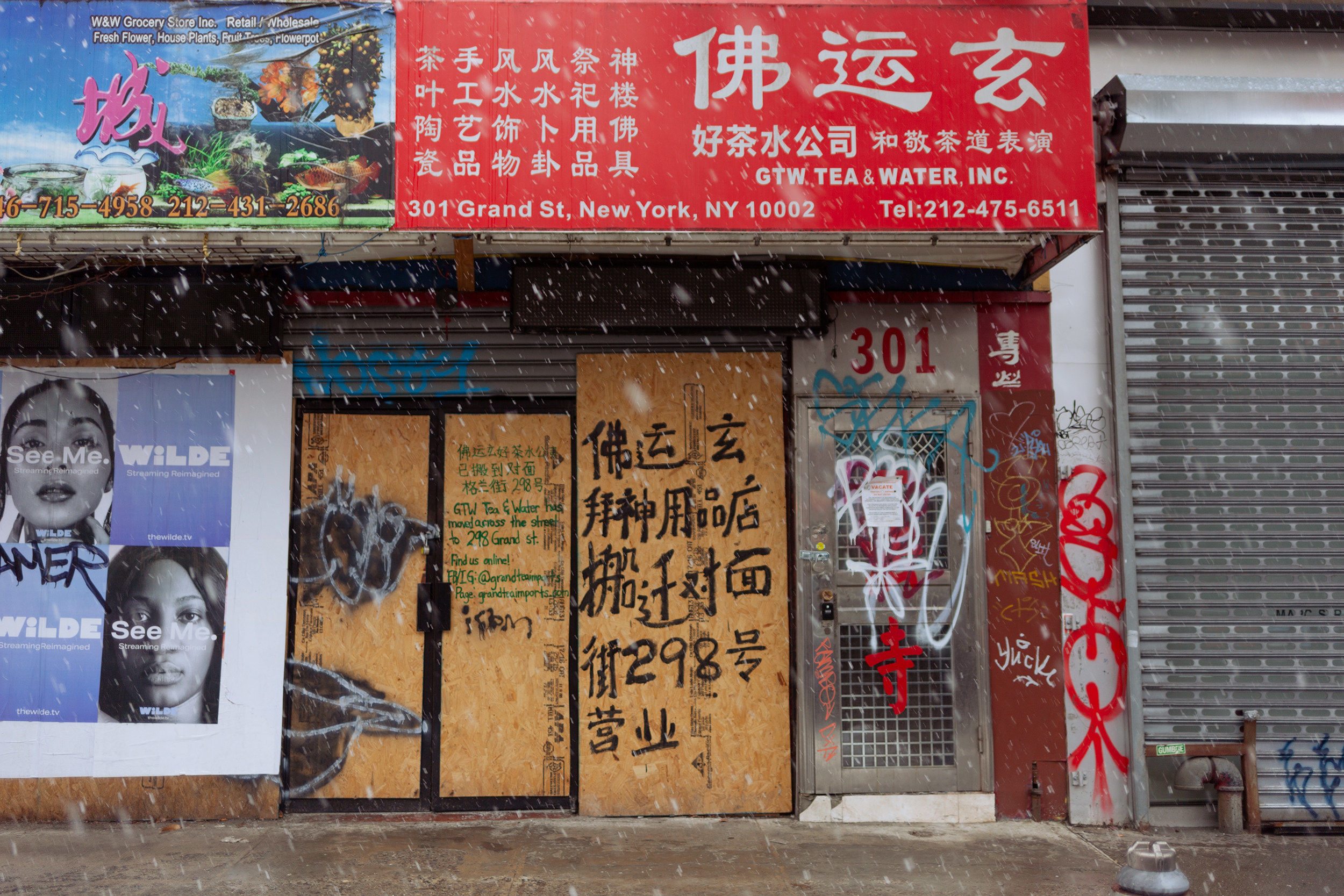
Hop Lee is one of Chinatown’s five remaining “legacy” restaurants to have been in the area for about 50 years. Its downstairs dining room and upstairs banquet hall are capable of seating over a hundred guests, and it was the last restaurant on the block to open back up (in October) after the city shut down in March. Owner Johnny Mui said that they are hanging on. “I had to put off the rent for December and January,” he said. “It’s another $8,000 [per month] for electricity, water, gas — if I don’t have that, then I don’t have a restaurant. I can wait two to three months on the rent. I have to.” These monthly expenses don’t include garbage removal, insurance, property tax, or the cost of food and wages. He cannot be late for any of these bills — if his gas were to be shut off, it might take one year for them to turn it on again. “Rent is just 30–35% of my headaches.”
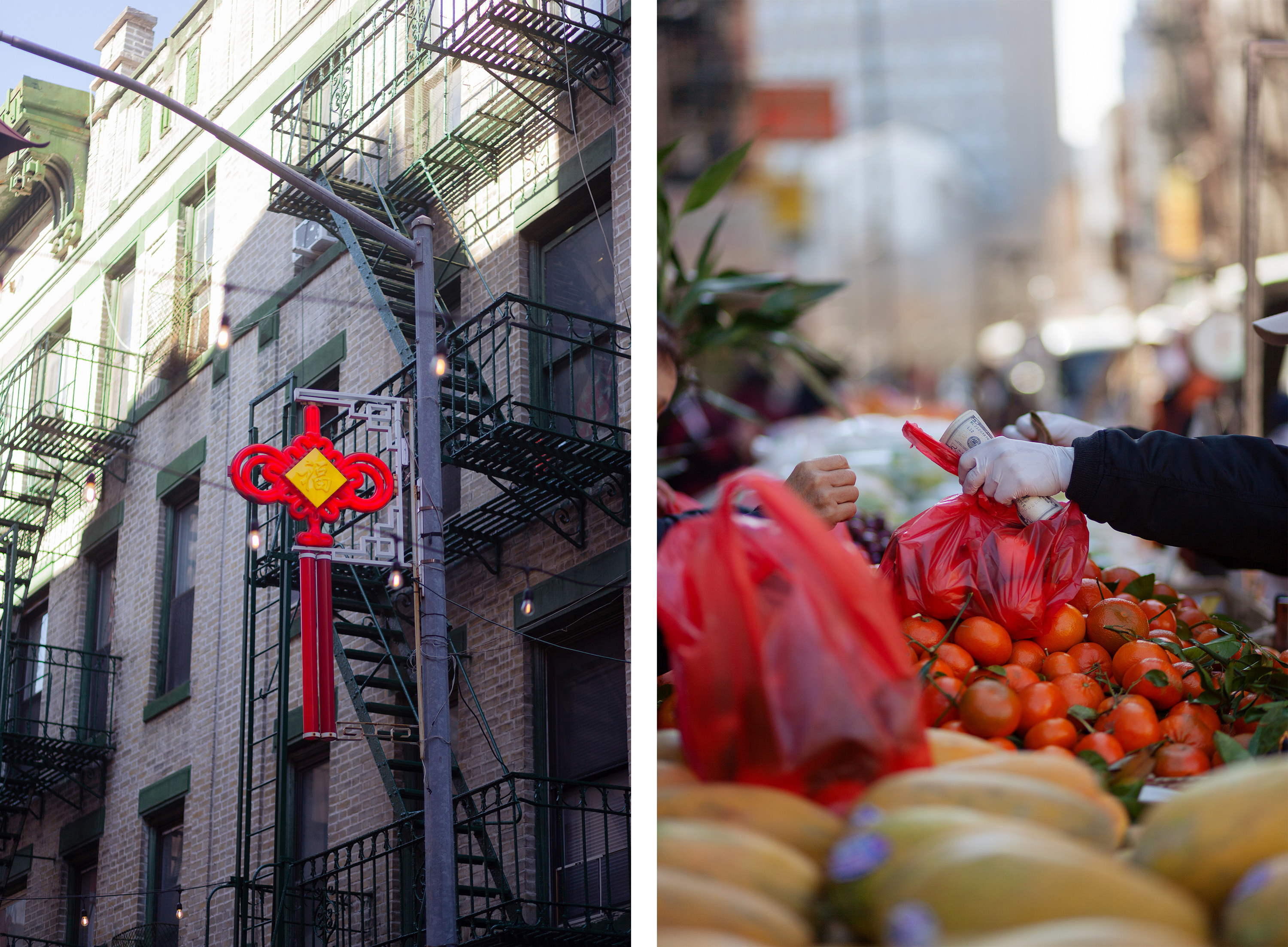
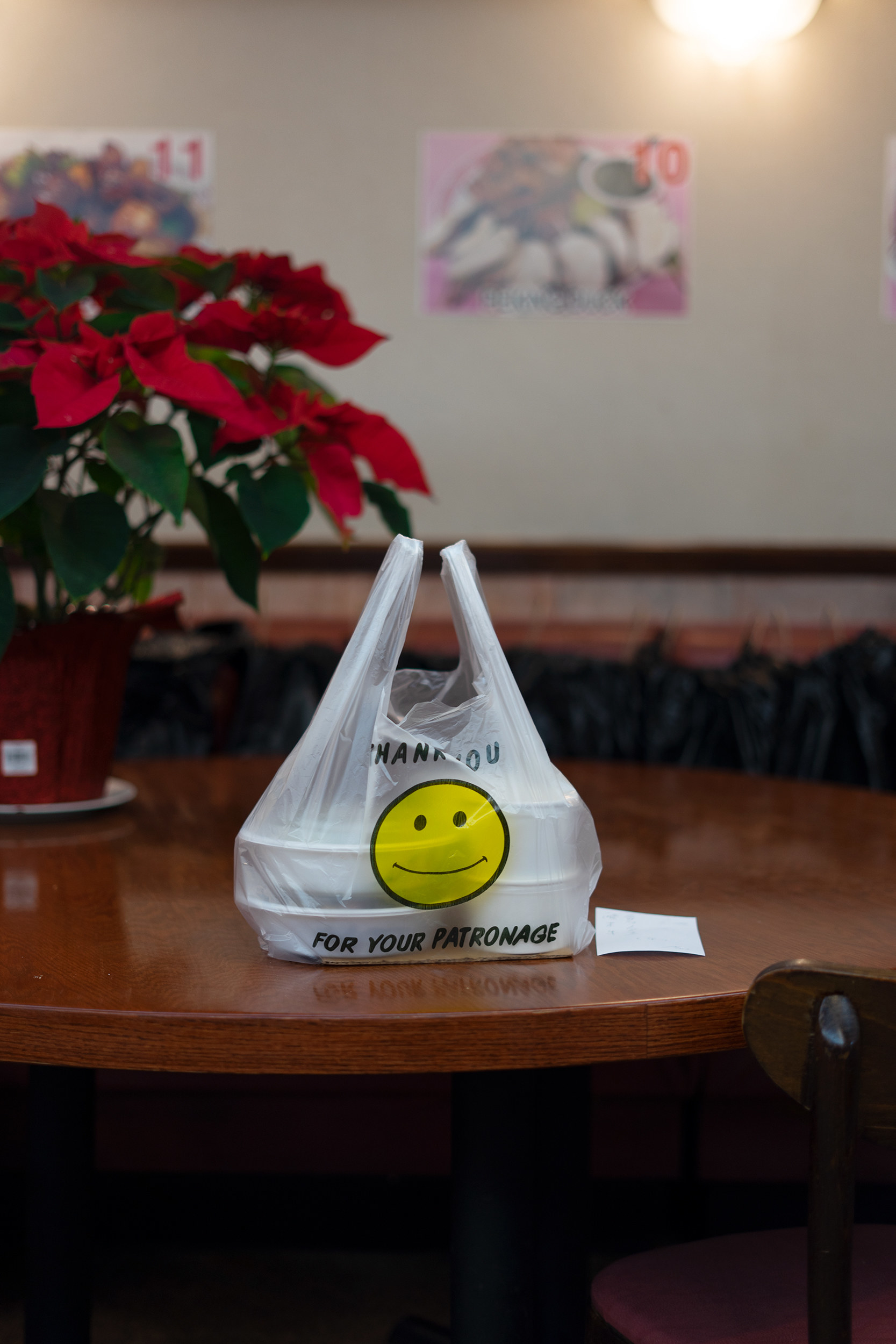
Mui said that property taxes also went up this year. “The city doesn’t help,” he said. “They say, ‘Apply for a PPP,’ but it doesn’t work for all businesses.” Recently, a loan program intended for low- to moderate-income areas in New York for businesses with less than 100 employees excluded multiple areas of Chinatown, including the area of Mott Street where Hop Lee is located. “Chinatown was the first neighborhood to be impacted by Covid,” said Young, “it’s almost ironic that these are the zip codes being left out.”
Indoor dining in New York City has been allowed at a capped percentage for roughly 2 of the last 11 months, with Gov. Andrew Cuomo this week extending it to include Lunar New Year. For many Chinatown restaurants, their large, banquet hall-style dining rooms are especially set up to accommodate large families, groups of friends, and work gatherings. Hop Lee had customers making reservations for Lunar New Year months in advance, only to be canceled again when indoor dining shut down after the Thanksgiving holidays. Bringing back indoor dining at 25% capacity is a boon, but giving restaurants and the purveyors who provide supplies for them just four days to prepare for it is chaotic.
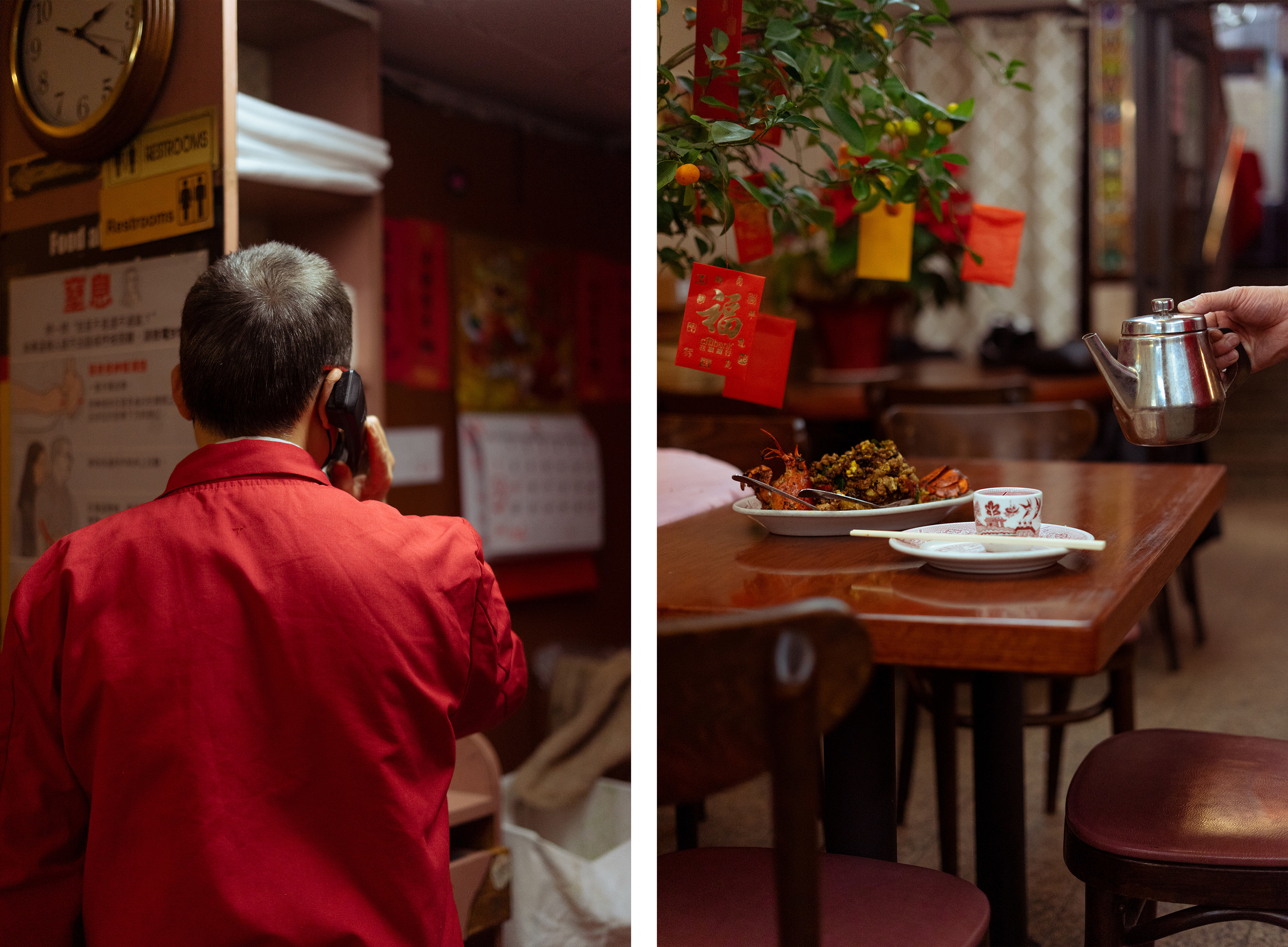
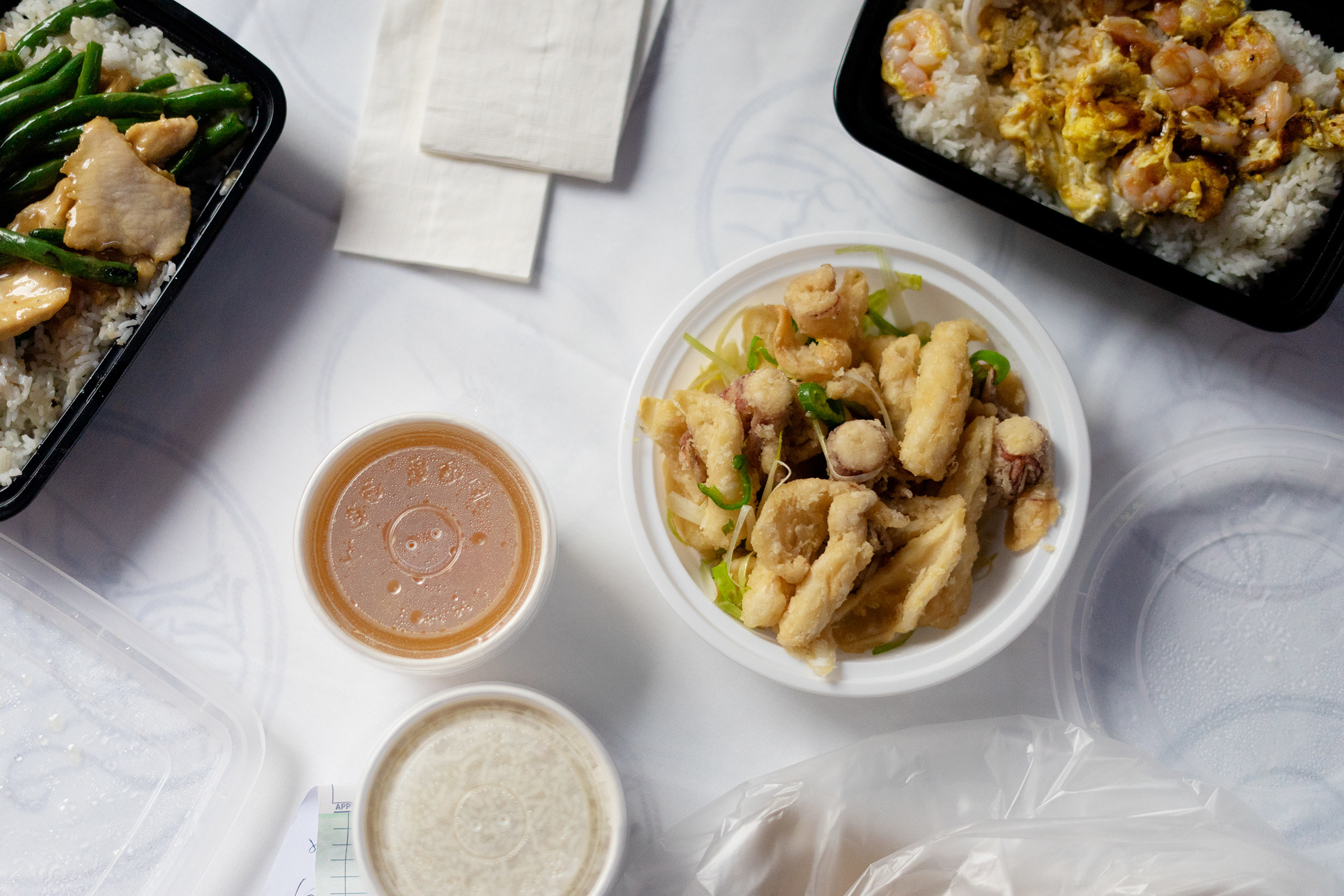
Jennifer Tam is a Chinatown resident and cofounder of Welcome to Chinatown, a nonprofit started in the early days of the pandemic that has raised over $650,000 for Chinatown’s small businesses to date. “It's amazing, but it's not nearly enough to get Chinatown back on its feet,” she said. Because she is local to the neighborhood, she witnessed firsthand the impacts of racism and xenophobia on Chinatown in January 2020, months before the whole city shut down. “We had heard that traffic and business went down about 80% overall. Not to mention the unanticipated expenses that popped up — PPE, heating elements for outdoor dining,” she said. “These businesses cannot afford that. A lot of Chinatown businesses don't have multiple investors because they are family-owned."
This past year, Chinatown has withdrawn into itself, with businesses reeling from the lack of customers and trade. In 2019, New York City drew 67 million tourists who could pass through the vibrant downtown area — not to mention hundreds of thousands of university students, people who serve on juries, and lower Manhattan workers, many of whom have since gone remote.
Hop Lee is a cash-only business that relies on a steady stream of locals, some of whom come for delicacies like lobster Cantonese; others, like a group of local postal workers, who took advantage of the $5.95 lunch. “There’s no street traffic. I don’t want to raise my prices or I’ll lose my regulars,” said Mui, who has had offers in the past to sell the business but declined out of respect for the original owner, who is still alive. “If we close, they lose the culture, not just the food,” he said. “People won’t know how to cook the lobster [Cantonese style]. It’s like our neighbors in Little Italy — there is pizza everywhere, but in each place it’s a little different, no one else can make it like [them].”
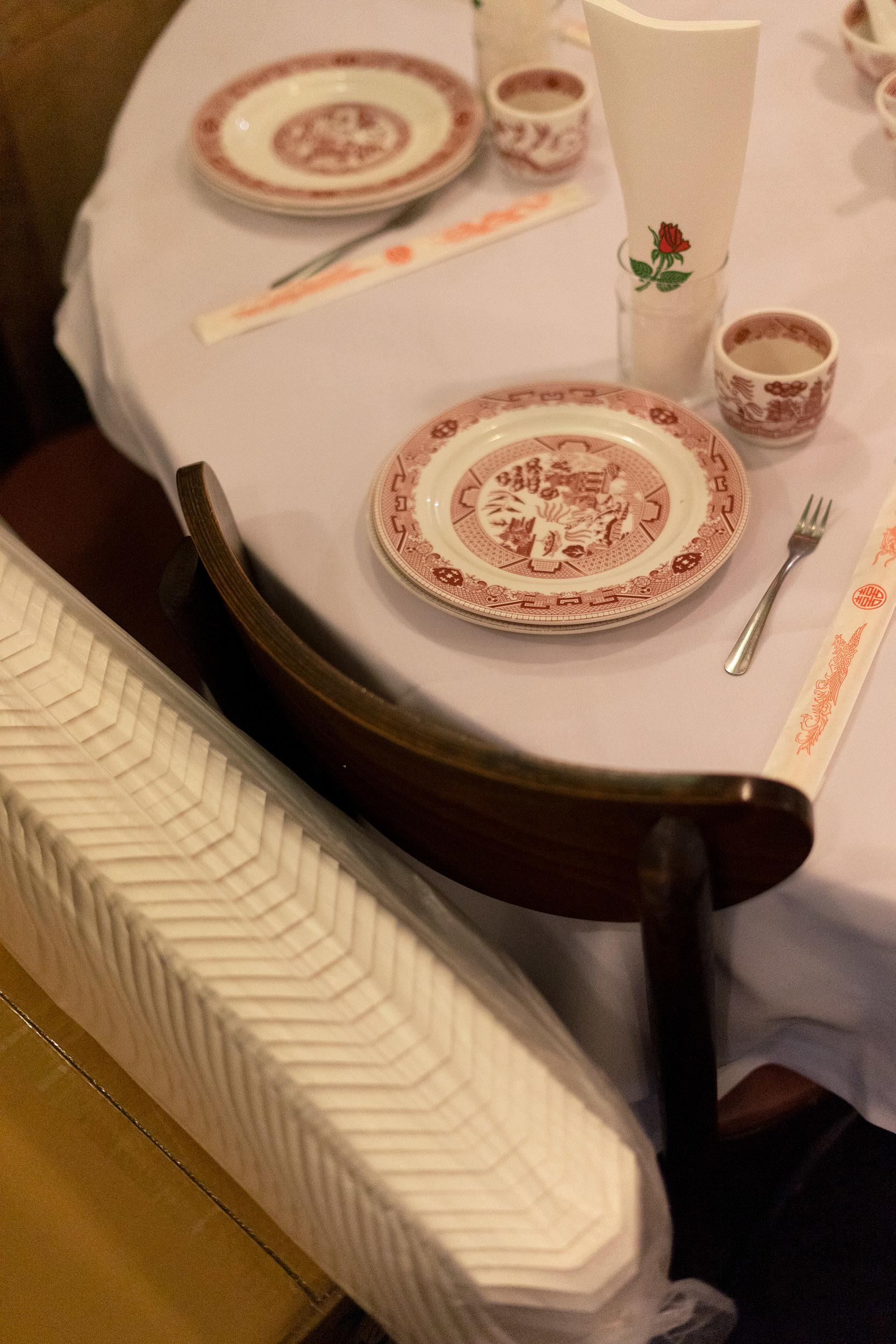
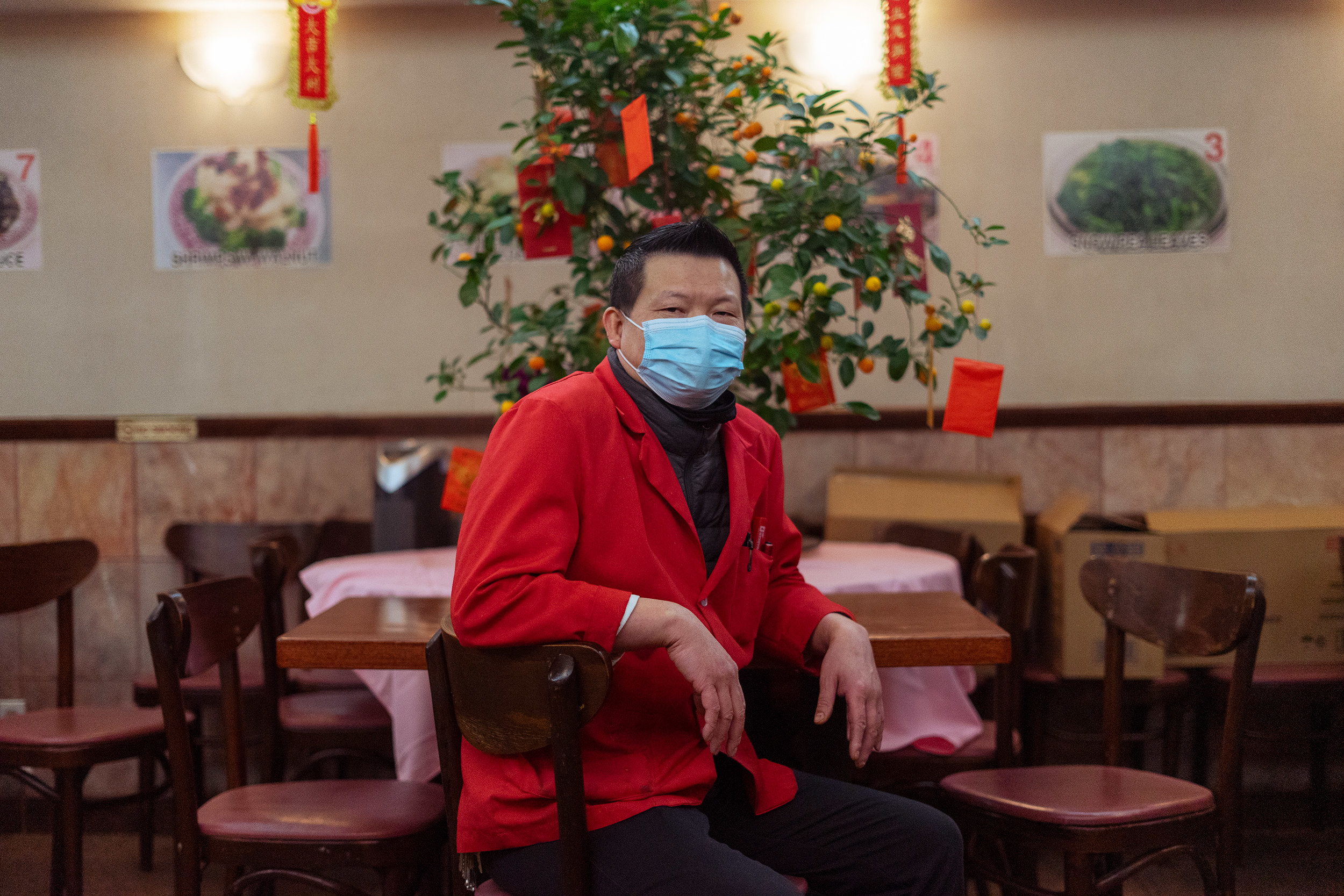
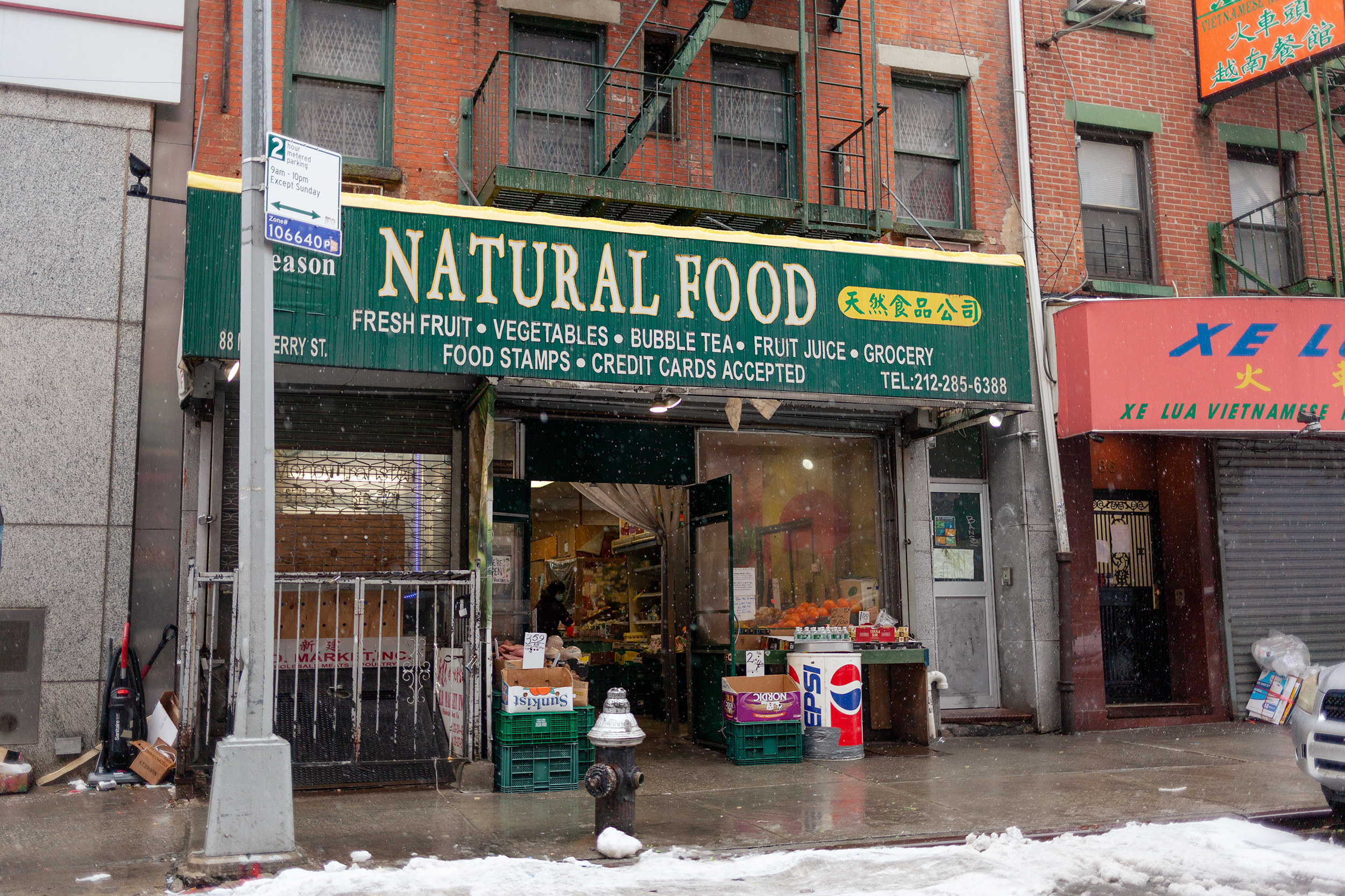
Other stores are finding that their business fluctuates in unpredictable ways. Natural 88 is a small family grocery, run by Lisa Wu, Yong Jiang, and their three daughters. Before the pandemic, supply restaurants in Chinatown made up 50% of their business, with customers buying entire cases of vegetables like bok choy and Chinese spinach. Now, the same customers have dropped their produce orders down to just 5 or 10 pounds. Natural 88 has made up part of the difference from foot traffic, as other places are unable to keep their doors open and customers seek out new options.
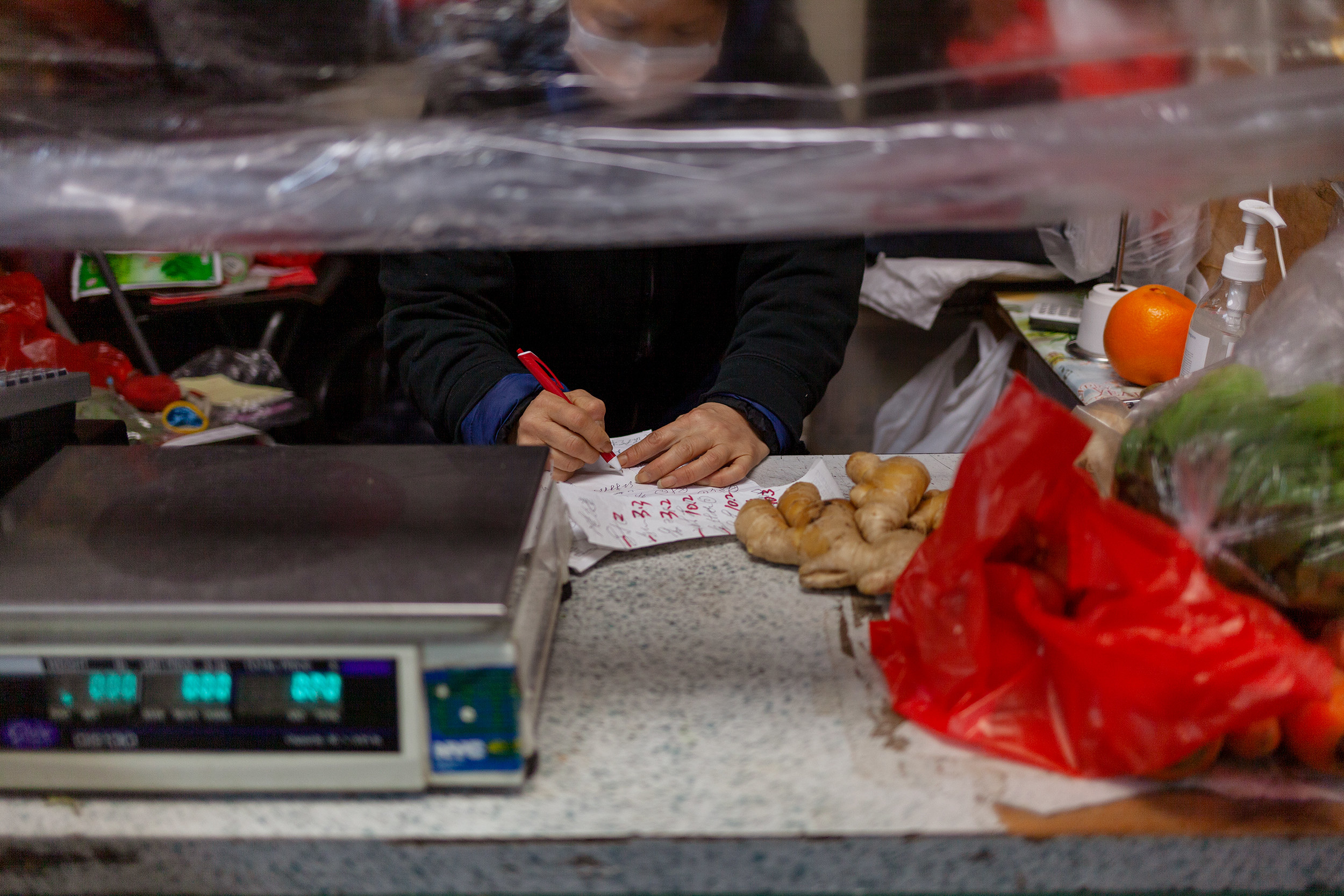
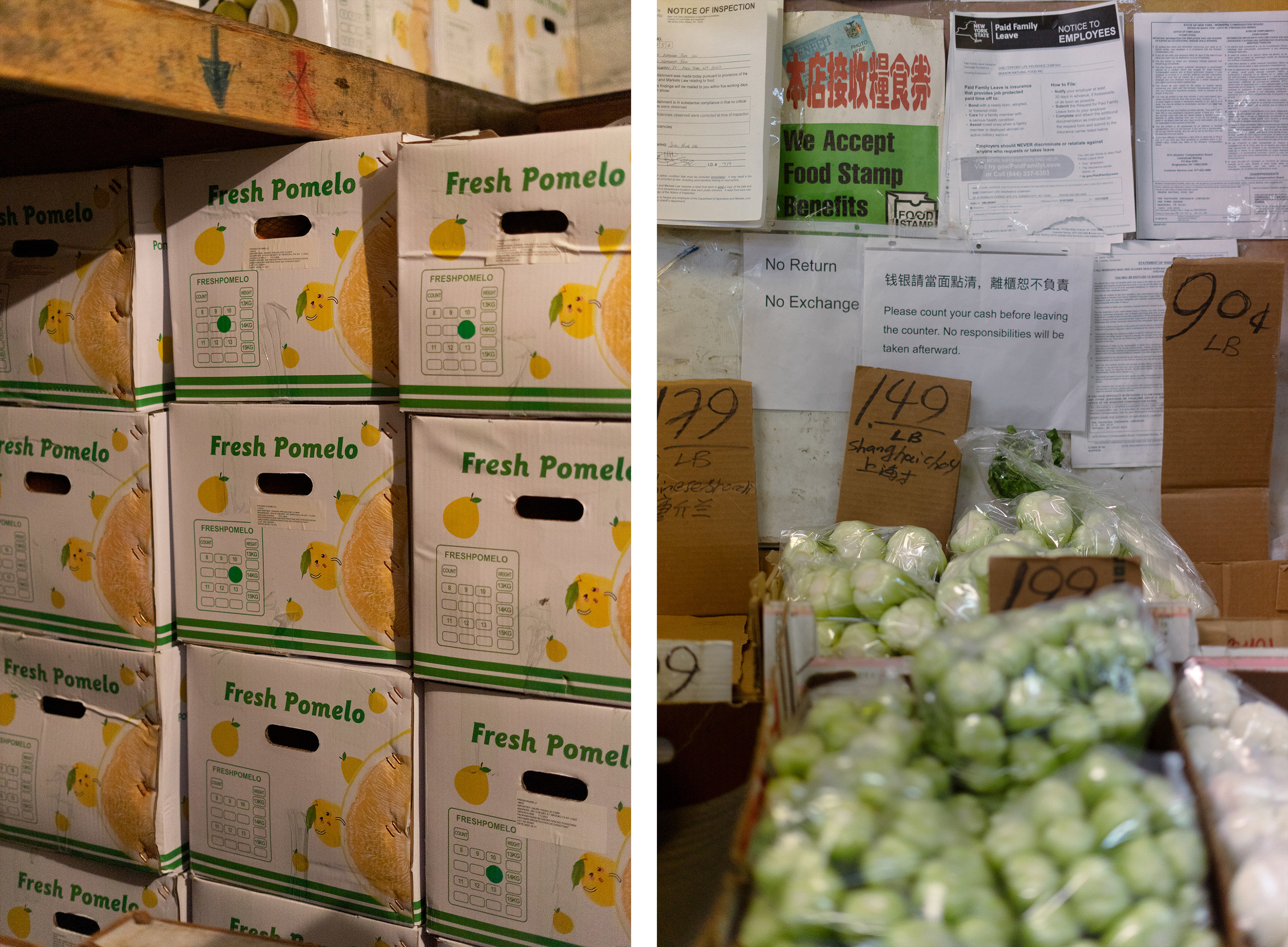
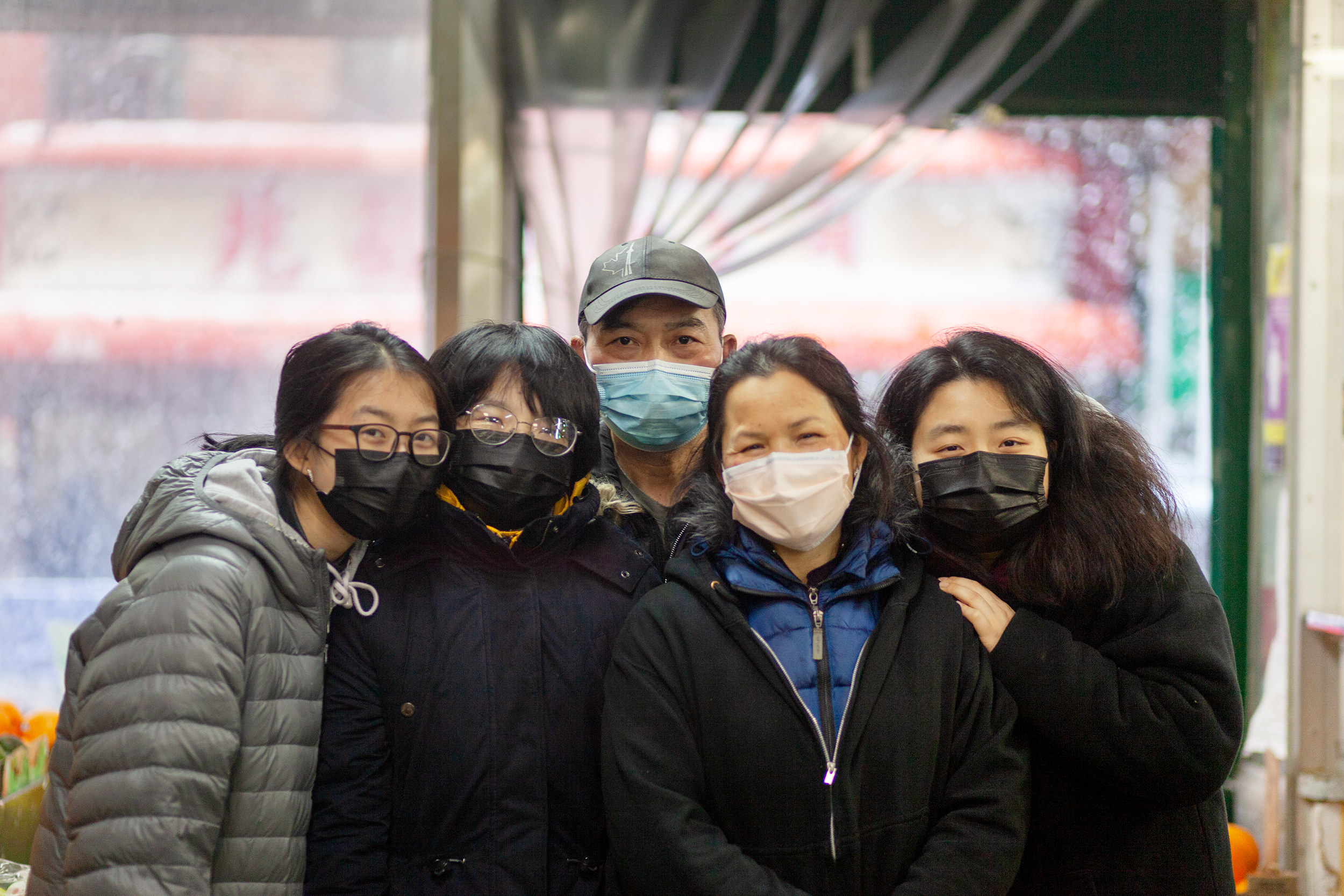
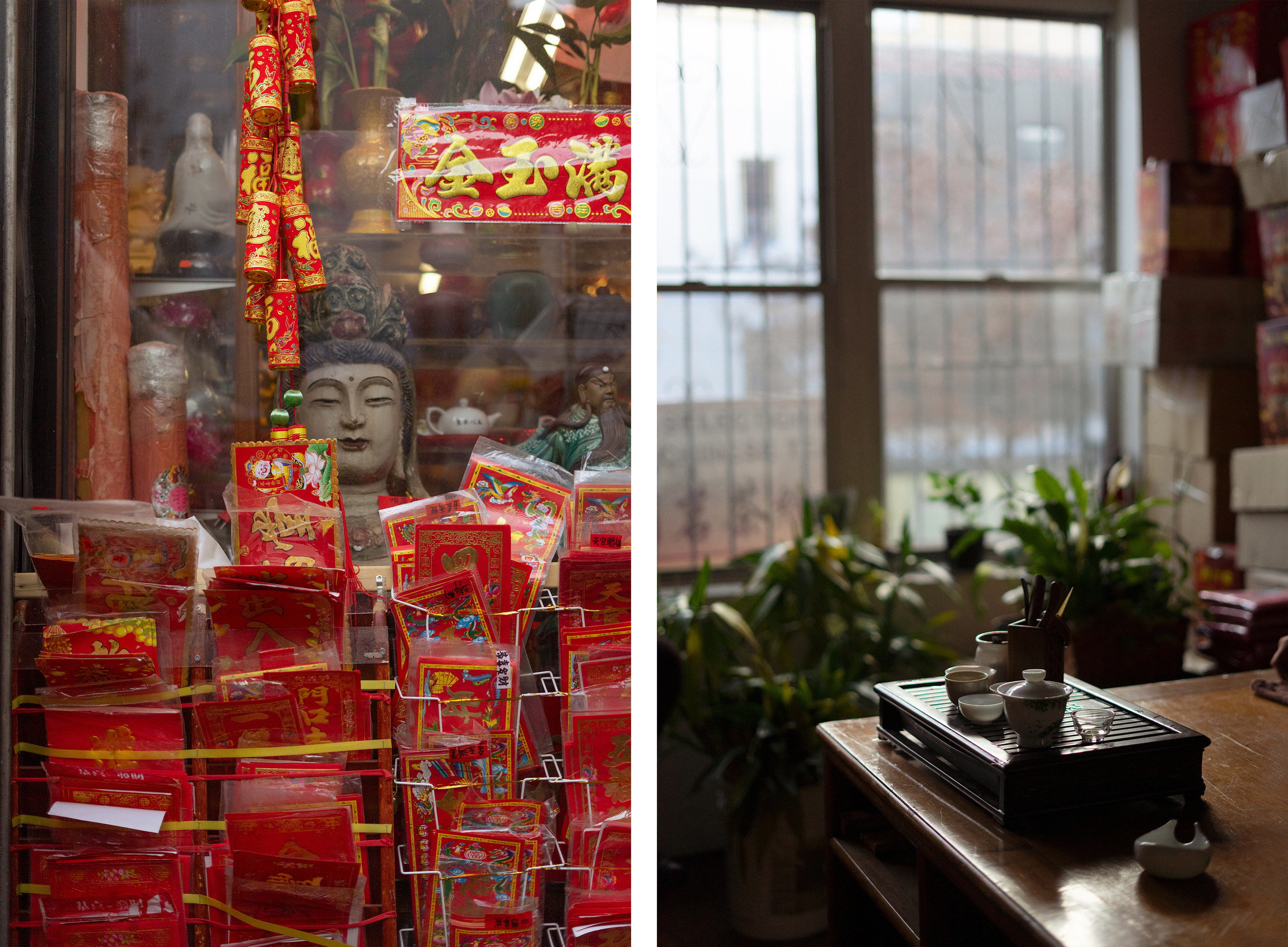
For specialty Lunar New Year items that “only the aunties know,” Young recommends Grand Tea Imports, which specializes in imported tea, feng shui and ancestral worship and Buddhist goods. Owner Alice Liu saves pomelo leaves for Young — it’s a tradition to bathe in them the night before Lunar New Year to wash away the bad luck. In 2019, Grand Tea had expanded from two stores on Grand Street, opening two more at the beginning of 2020. After the pandemic shut most of the city down in March, they closed down three of the four stores. Then, a fire raged through their flagship on Grand Street. They lost 40% of their inventory and suffered significant damage, with no insurance coverage.
After they moved out of the fire-damaged building and across the street, Liu stepped in to take the business over from her parents. “My dad said it was time to pass the baton this year,” she said. “He believes that for me to succeed, I need to have pressure and a fire under my butt. He paid his dues [with the business] and now it’s my turn.”
“I don’t know if I’m prepared, but I’ll grow into it,” she said. “My parents won’t ever be hands off, and I’m definitely learning as I go with a lot of the operations and the financial end of the business. When my parents were running it, they kept track of the income they brought in on a notebook. We didn't have any of the financial stuff set up. So it’s on me to set up those systems.”
Lunar New Year is a time for new beginnings, and the attitudes this year reflect this more than ever. “Last year was a bad year,” said Liu. “Luckily, we can only go up from here.”
